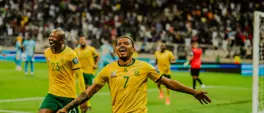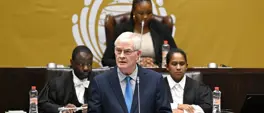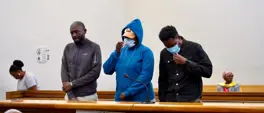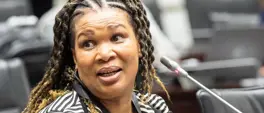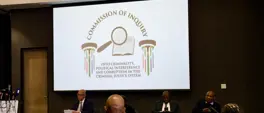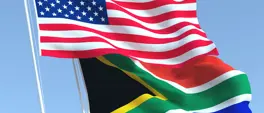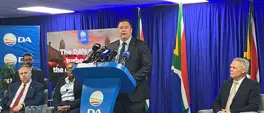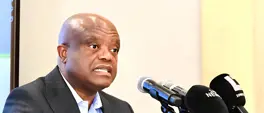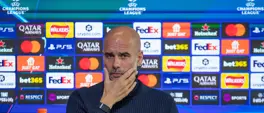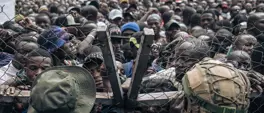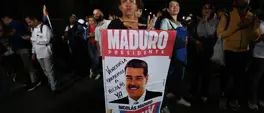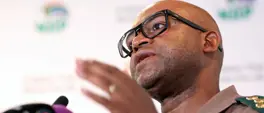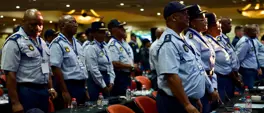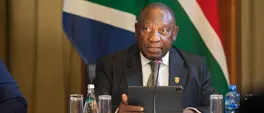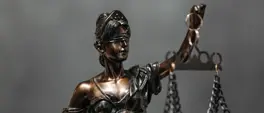YONELA DIKO: Ramaphosa has finally succeeded in uniting the ANC
Yonela Diko
28 May 2024 | 10:19Ramaphosa was adamant that unity was the ingredient needed to achieve all the important things that needed to be achieved, without which success was improbable, writes Yonela Diko.
President Cyril Ramaphosa staked much of his success on a united African National Congress (ANC), even when it seemed uniting the ANC was counterproductive.
Ramaphosa seemed hellbent on this ANC unity, even with some of its leaders who had destroyed the organisation’s moral standing and destroyed its political hegemony.
It seemed unwise for the president, elected as it were on the back of rooting out corruption and its enforcers, to be calling for unity with these very enforcers who had turned from revolutionaries into conmen and swindlers, destroying the very instrument of liberation they were meant to preserve and protect.
It seemed then that cutting these ANC leaders off immediately would be a more productive thing to do, especially from the State.
Responding to public frustration that he was soft on party criminals and making himself a weak president, Ramaphosa said: "Before president Zuma resigned, there were those who said: 'You are a weak president. Why haven't you kicked Zuma out, why haven't you dealt with him?'
"I said I would rather be seen as a weak president than split the ANC, because that is not my mission. My mission is to keep the ANC united, and I intend to succeed in having the ANC united."
Ramaphosa was adamant that unity was the ingredient needed to achieve all the important things that needed to be achieved, without which success was improbable.
He said: "We need as we move on to resolve a number of challenges that confront our country, but we also know that we can only confront those challenges if we are a united organisation. If the ANC is divided it will never be able to unite the people of South Africa."
UNITING THE COUNTRY
Ramaphosa was not only attempting to unite the ANC, but the country as well, especially and influential sectors and key individuals in society who had lost some confidence in the genuineness of the ANC as an honest power holder, but were very much important in the process of rebuilding.
This process needed humility, as ANC arrogance of the past had been very costly. Humility, however, can easily come across as being weak.
Incident after incident seemed to prove that Ramaphosa was a meek and soft leader when compared to his very driven and motivated detractors, who did not miss an opportunity to exploit these incidences.
There was the incident early in his presidency of seemingly kneeling before King Goodwill Zwelithini when he met the Zulu king to discuss the Ingonyama Trust controversy. Ramaphosa’s public relations team was at pains to explain why he he knelt.
Then there was the rumour of pulling out from closing the KwaZulu-Natal ANC Conference after what then seemed a triumph of a Zuma faction and the unpredictable reception he might receive, a clearly misguided decision as Ramaphosa himself had been closing all conferences of provinces irrespective of their outcomes.
In government, there were chronic delays in reshuffling his Cabinet, and the return of controversial figures, Ramaphosa seemed to be sacrificing control of the organisation and his government through painful compromises.
While he was preaching unity, others were intensifying the chaos. The ANC infighting and disunity playing itself out in public portrayed an organisation under Ramaphosa that was no different from his loathed predecessor - an organisation in a state of paralysis, and a president who seemed incapable of doing anything about it.
Ramaphosa's obsession with unity and inability to take tough decisions and fire some rogue elements suddenly made people see Zuma in a better light - that while Zuma was a rogue president, he was a decisive one.
HAS RAMAPHOSA OUTSMARTED HIS DETRACTORS?
Six years later, with a full presidential term behind him, all his detractors are largely outside the ANC, and many erstwhile leaders who had removed themselves from the ANC throughout the Zuma years are back on the campaign trail for a Ramaphosa’s second term as President of the Republic.
Firstly, Ramaphosa’s singular focus on unity, particularly when it comes to Zuma, robbed Zuma of his favourite position from which he has launched much of his political comebacks - victimhood. While Ramaphosa triumphed over Zuma’s preferred presidential candidate, Nkosazana Dlamini Zuma, he brought her into his office as the Minister in the Presidency.
This refusal to place other leaders in positions of victimhood where they could use the president’s face to galvanise their supporters became Ramaphosa’s hallmark of leadership. This gave Ramaphosa independence and separation from processes that needed to unfold, against the very leaders Ramaphosa was united with.
Today, there is no leader who can say Ramaphosa kicked them out of the ANC. They processed themselves out of the organisation.
While Zuma is trying to campaign around an "ANC of Ramaphosa", it has found little traction because Ramaphosa did nothing to him except to help him mitigate the severity of consequences from his self-inflicted problems.
Through process on one hand and an ANC president actively seeking unity on the other hand, Ramaphosa has smartly rid the ANC of much of its cancerous leaders. Leaders who wanted to turn the ANC and its government into a criminal enterprise, and then present themselves as true representatives of the left, as if the left is desperate of leaders in government, have fallen out of power.
THE ANC MACHINE IN ONE ACCORD
On the eve of elections in 2024, the ANC, with Ramaphosa at the helm, is running an extremely effective, competent, and cohesive election machine, with its one-million-man army of volunteers and members, all singing from the same hymn book.
There are no more dissenting voices threatening to de-campaign the ANC because they were passed over for this opportunity, or that they have been victimised because they did not support a Ramaphosa presidency. It’s a campaign of a million voices with one message.
The message is clear. The country has come a long way under the ANC government. Incredible strides have been made. However, the goal of a better life for all has not reached all South Africans.
As the ANC manifesto says: “We still have many more hills to climb. We will climb them together! Leaving no one behind!”
Yonela Diko is the former spokesperson for the Minister of Human Settlements, Water and Sanitation.
Get the whole picture 💡
Take a look at the topic timeline for all related articles.


